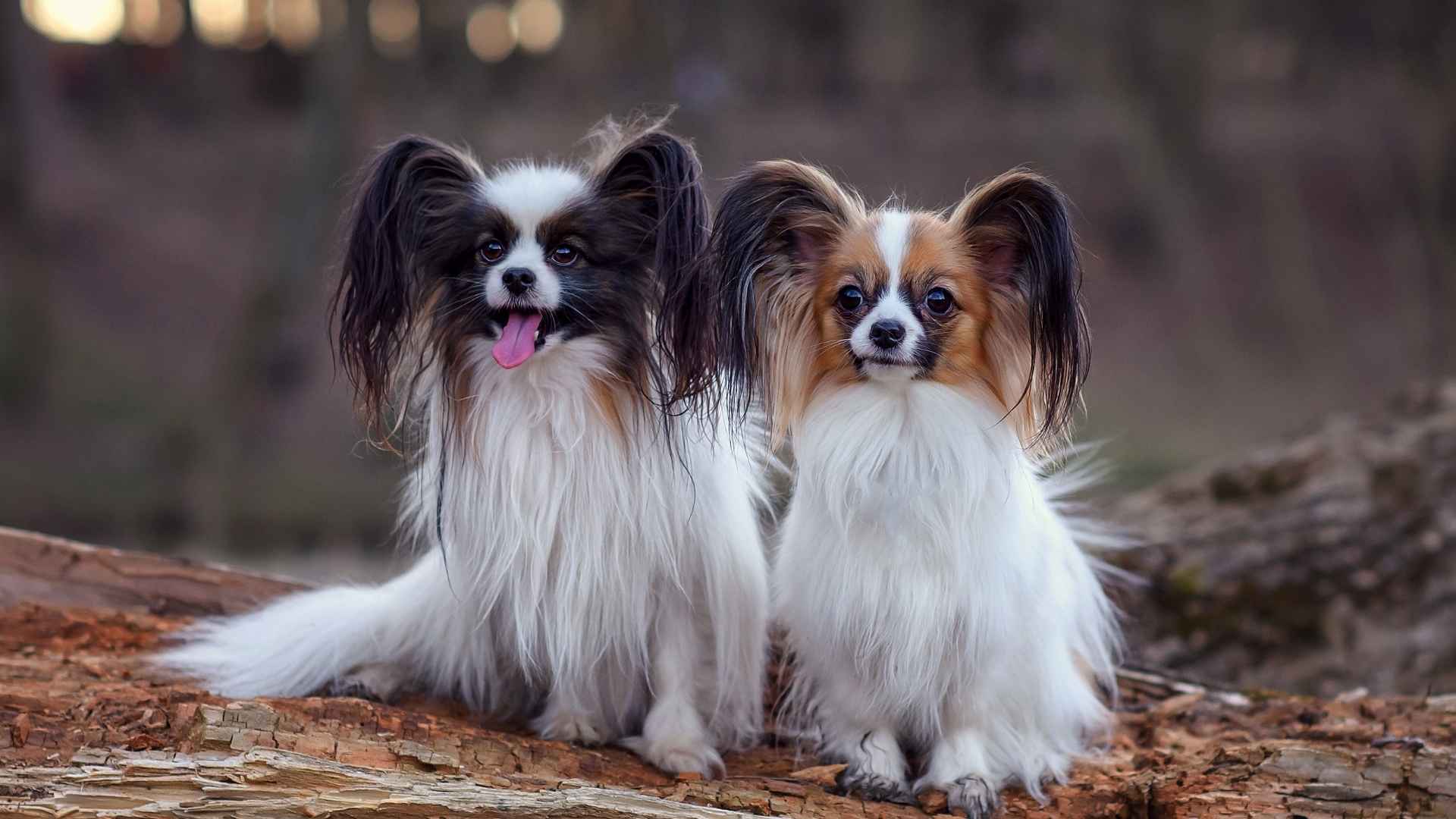When it comes to choosing the right canine companion, some dog owners prefer a dog with a little more independence. Independent-minded dogs are known for their strong personalities and self-sufficiency, making them an ideal choice for owners who appreciate a dog that doesn’t always rely on constant attention or direction.
These dogs are often more confident, intelligent, and capable of entertaining themselves, which can be a refreshing change from the typical needy pup. While they still enjoy companionship and affection, they tend to thrive on their own terms.
If you’re looking for a dog that’s not just a pet but a true companion who respects personal space and exhibits a sense of autonomy, an independent breed might be the perfect fit. In this blog, we’ll dive into what makes these dogs stand out and help you understand whether one of these strong-willed breeds might be right for you.
Independent-Minded Dog Breeds
1. Chow Chow
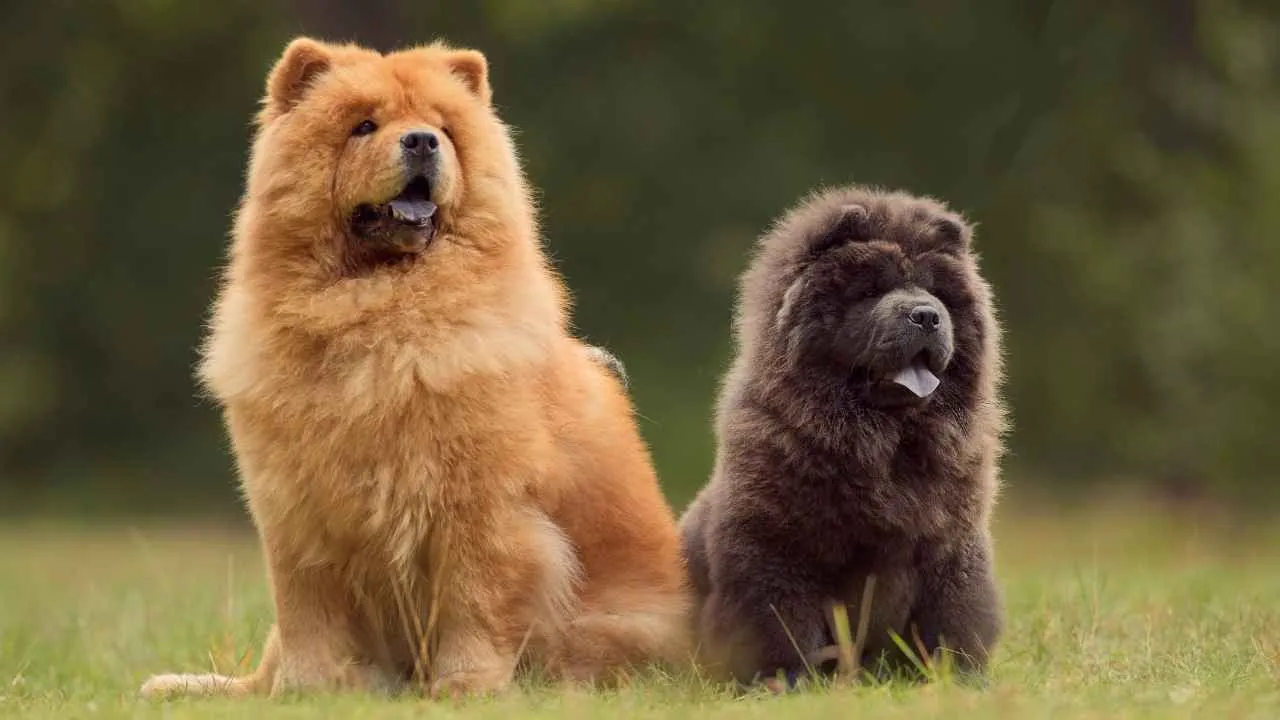
Originating from ancient China, the Chow Chow boasts a history that stretches over 2,000 years. Originally bred for guarding, hunting, and pulling carts, the breed’s strength and loyalty were highly valued. Their majestic appearance and dignified demeanor made them symbols of prestige, often kept by Chinese emperors of the Tang Dynasty.
Chow Chows are famous for their aloofness and strong-willed personalities. Chow Chows are content with their own company and prefer to interact on their terms. This independence is a reflection of their history. They were trained to think for themselves, often acting without much guidance from humans.
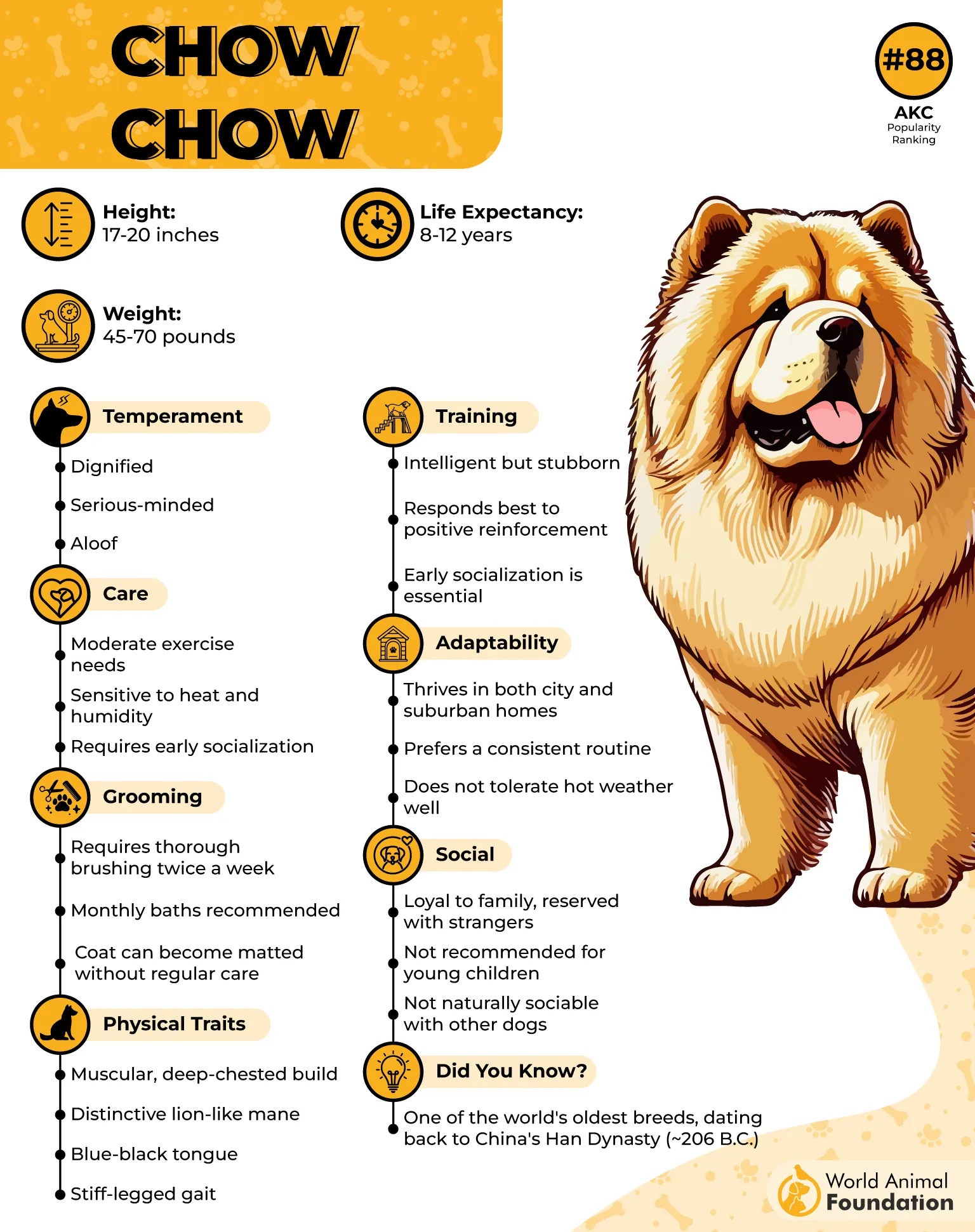
They’re not quick to seek affection, and they don’t always respond to training as eagerly as other breeds. Their aloof demeanor might come off as standoffish, but it’s simply a sign of their self-reliance and confidence.
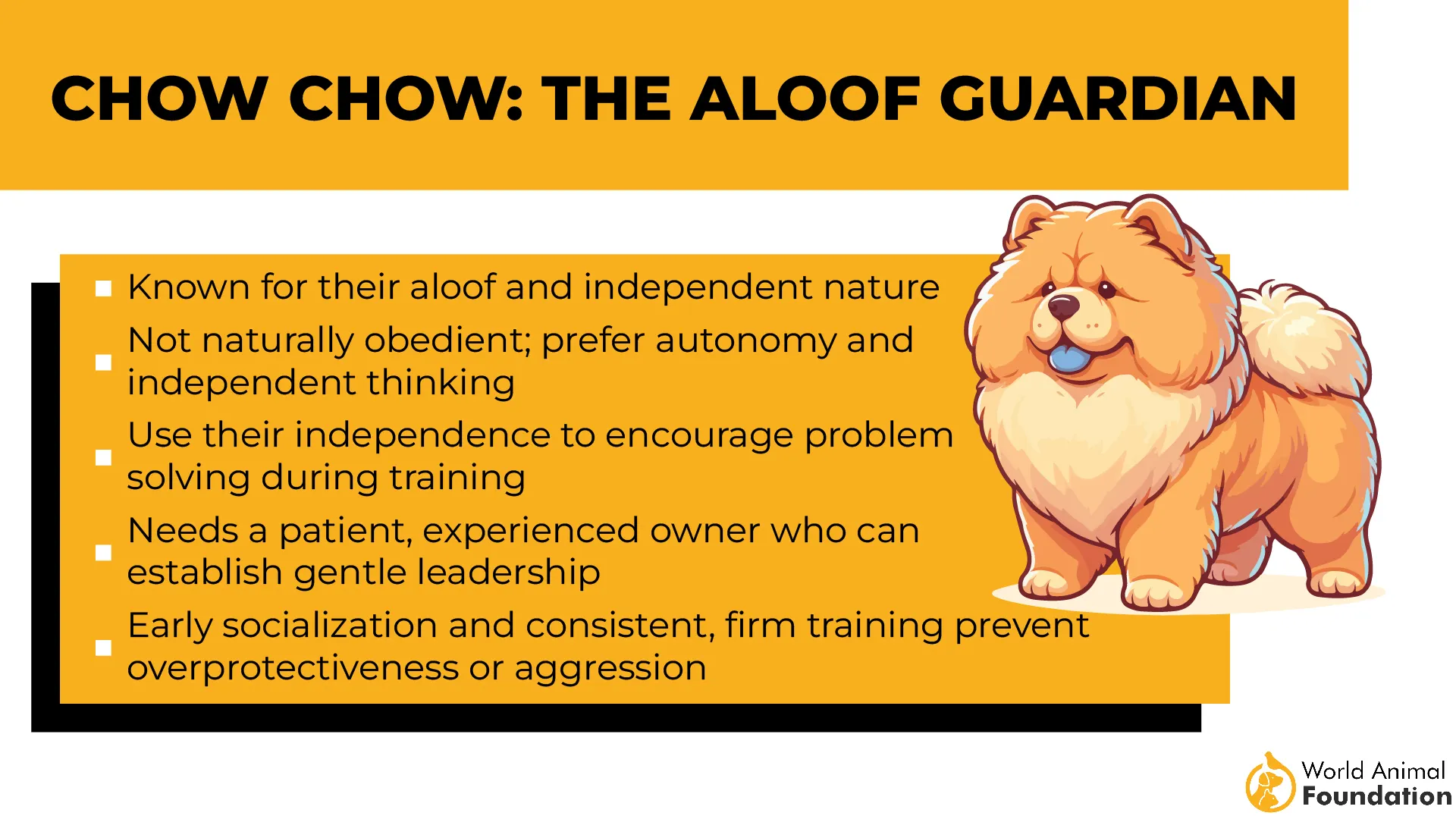
As noted by AKC, Chow Chows are independent thinkers but are fiercely loyal to their families. They may not shower you with affection, but they will always watch over their loved ones with unwavering dedication.
They trust their instincts and prefer to observe rather than engage. Their loyalty, however, is earned and displayed on their own terms, showcasing their unique sense of self. For those who seek a dog that values personal space yet offers deep loyalty, the Chow Chow is the perfect companion.
Its independent nature means it thrives in environments where it’s allowed to maintain autonomy. A Chow Chow is not just a pet—it’s a confident, self-assured partner who demands respect and offers loyalty in return.
2. Shiba Inu
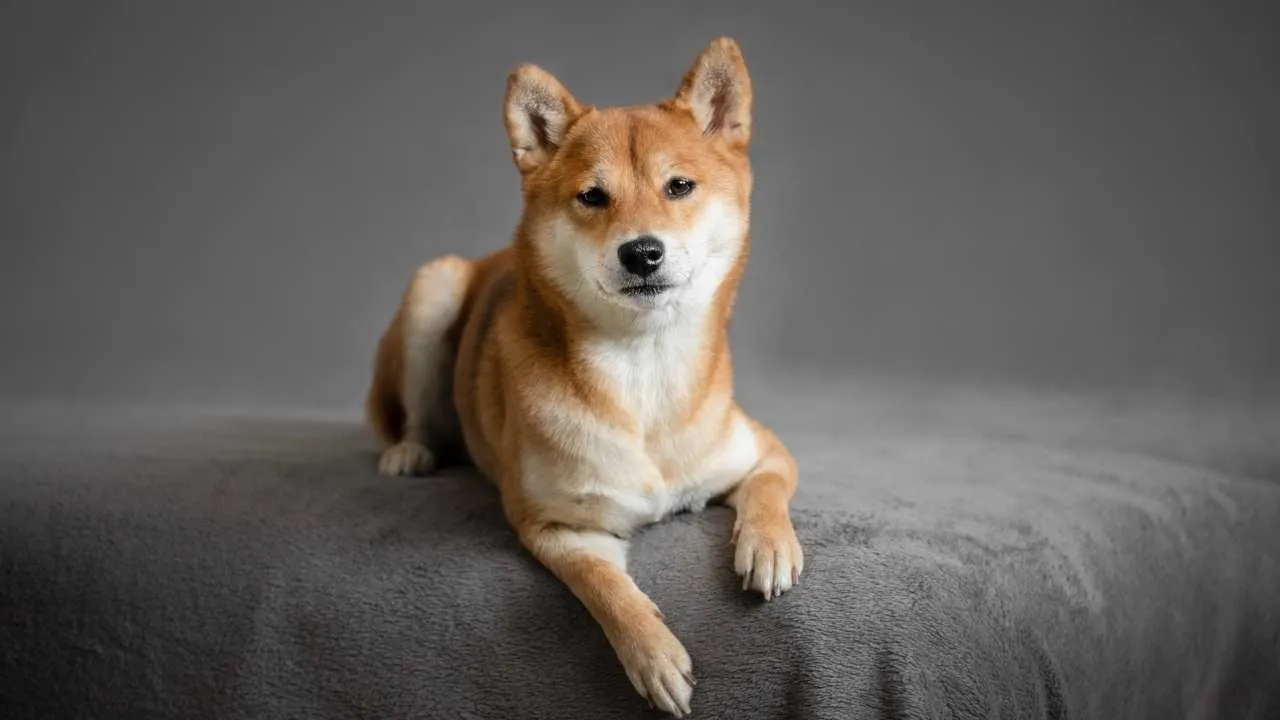
The Shiba Inu is known for its independent and free-spirited nature. Originally from Japan, these dogs were bred for hunting and have kept a strong sense of self-reliance. While affectionate with their families, they tend to be reserved, making them ideal for owners who appreciate a more autonomous pet.
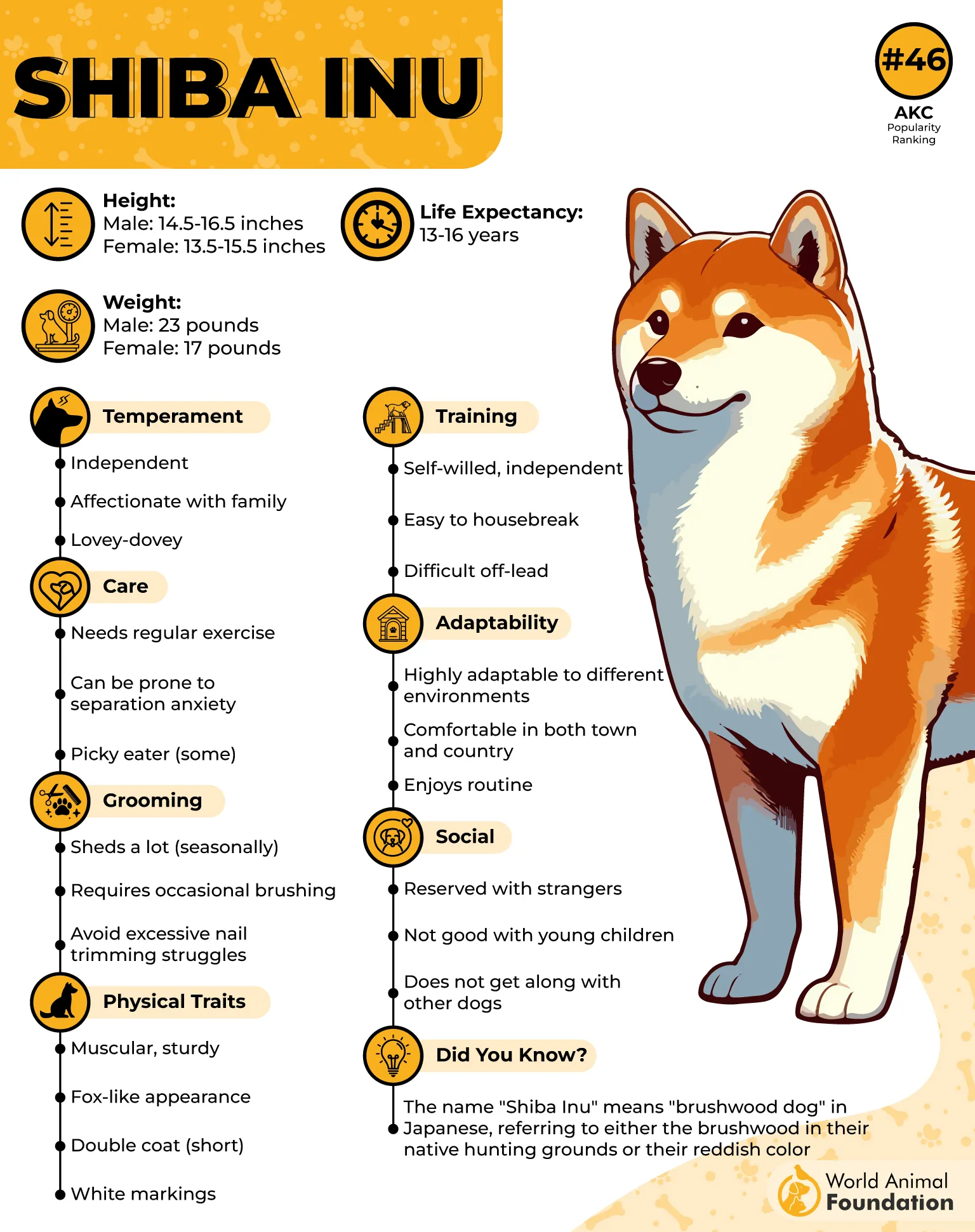
Their independence can make training a challenge, as Shiba Inus are intelligent but not always eager to please. They often follow their own instincts rather than commands, which can lead to stubbornness. However, with patience, they can learn basic commands, though they remain strong-willed.
Petplan states a unique trait of the Shiba Inu is the “Shiba scream,” a sharp, high-pitched noise often heard when they’re upset or excited. Not all Shibas scream frequently, but it’s a curious quirk that many owners get accustomed to. The scream serves as their way of vocalizing frustration or excitement.
Shiba Inus are loyal to their families and protective of their homes. They tend to be reserved with strangers but form strong bonds with those they trust. While they enjoy their family’s company, they generally prefer having some personal space.
Shiba Inus are relatively low-maintenance in grooming, though their thick coat requires regular brushing, especially during shedding season. They thrive in environments that allow them the freedom to explore and stay mentally stimulated, as their independent nature enjoys both outdoor adventures and quiet solitude.
3. Jindo
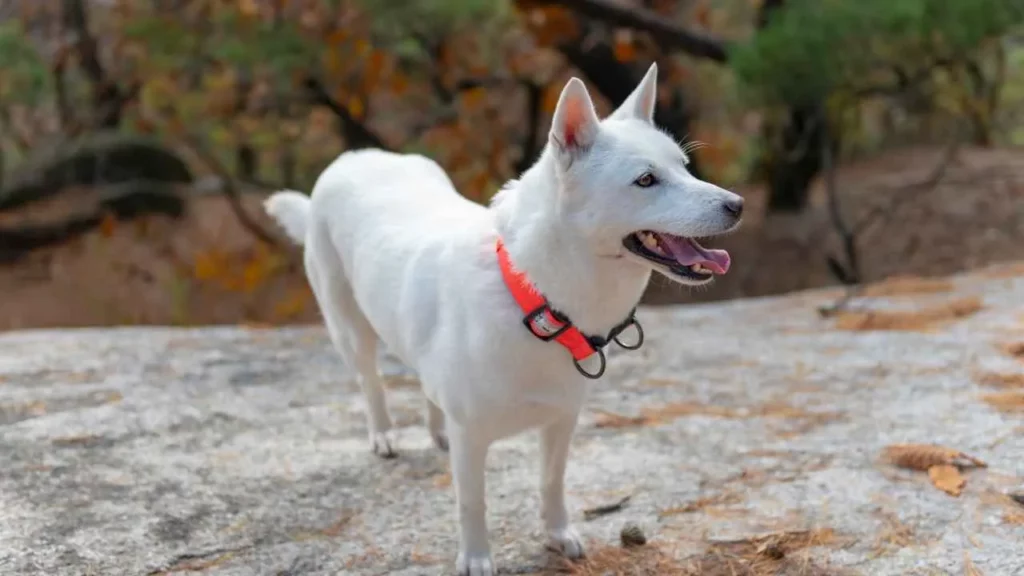
The Jindo, a national treasure of South Korea, is a breed defined by its fierce independence and unwavering spirit. Bred for centuries on Jindo Island, these dogs honed their instincts through survival, hunting, and protecting their territory without needing constant human guidance.
Living with a Jindo is a partnership built on respect rather than control. They think, assess, and often make their own decisions based on what they believe is best. While loyal to a fault once trust is earned, a Jindo expects its human companion to match their quiet dignity and intelligence. Attempts to dominate or overly manage them often backfire — cooperation must be a mutual choice, not a command.
Their independence shines most clearly in how they handle everyday life. Jindos are known for managing extended periods alone without growing anxious or destructive. They don’t crave constant interaction, instead valuing their own space and time to observe and guard quietly.
They bond intensely with their families, yet rarely act overly clingy. Instead, they show devotion through action—guarding, following silently from a distance, or making independent choices that prioritize the safety and well-being of their home.
Owning a Jindo is a commitment to honoring a legacy of autonomy, intelligence, and quiet strength. Jindo offers a companionship like no other — a silent, steadfast ally with a soul too proud to be anything but free.
4. Akita
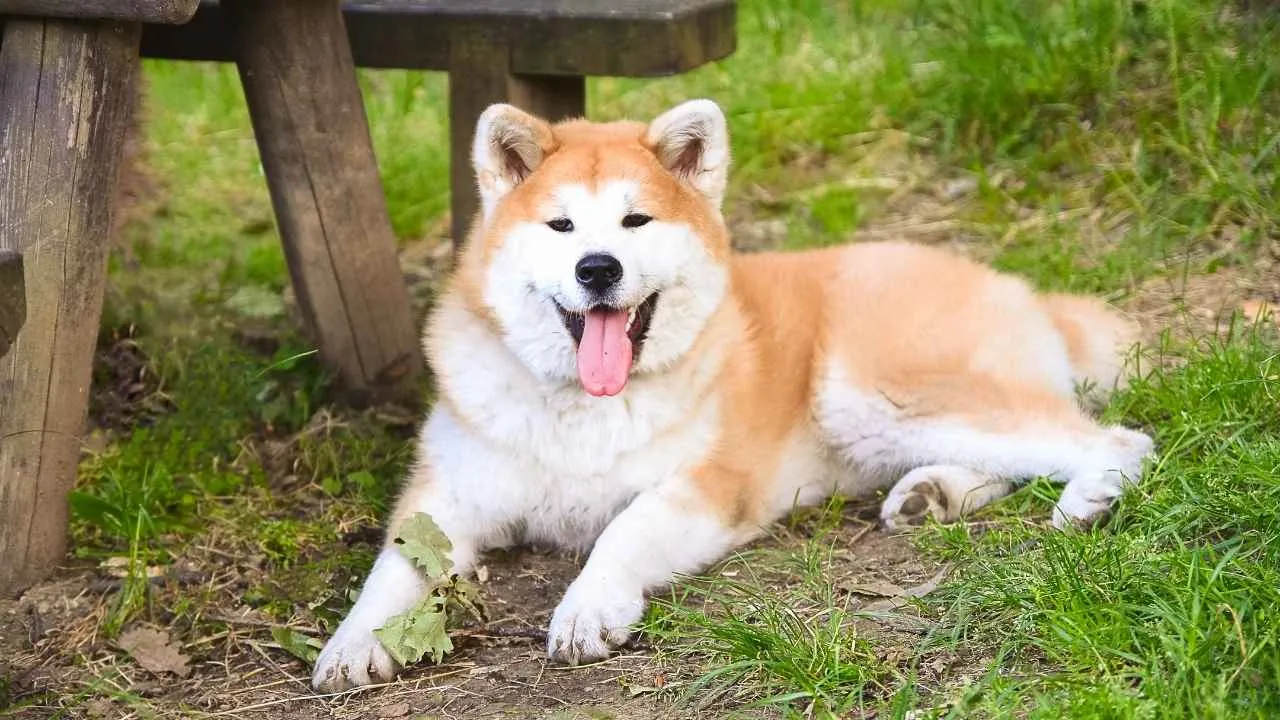
The Akita is a majestic and powerful breed known for its strong independent streak. Originally bred in Japan for hunting large game, Akitas possess an unwavering sense of autonomy and self-sufficiency. This independence makes them more likely to think for themselves rather than follow commands, which can be a challenge for new dog owners or those seeking a highly obedient pet.
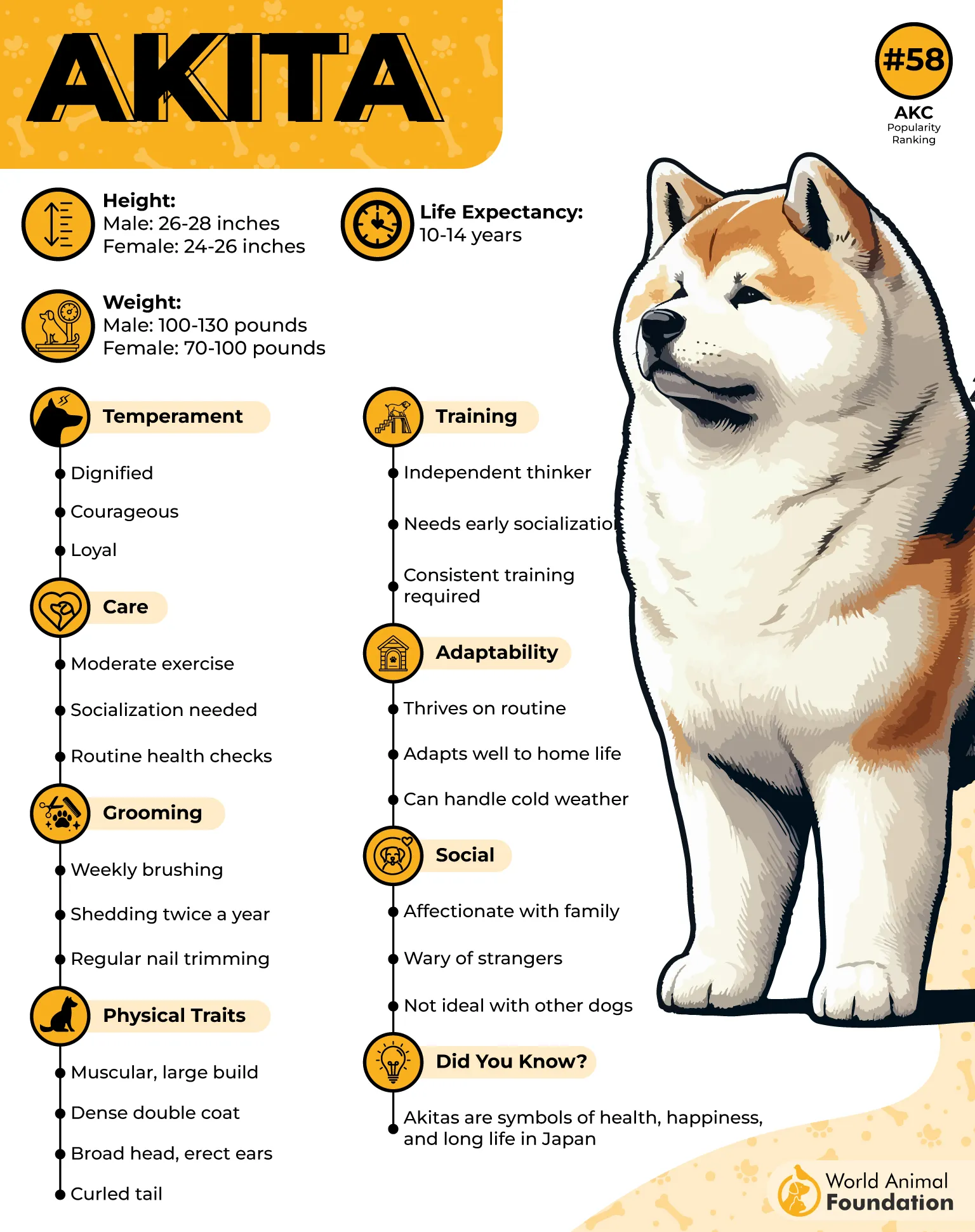
Training an Akita requires patience and consistency, as their independent nature means they are not always motivated by praise or rewards. They can be stubborn and may resist commands they don’t see as essential.
As noted by Britannica, Akita is known for being somewhat aloof, especially with strangers. While they are deeply loyal to their families, Akitas value their personal space and tend to be reserved, making them ideal for owners who respect their need for independence and solitude.
Akitas are strong-willed and protective, often taking charge of their environment. They do well in homes with secure yards and need structured walks or activities to keep them engaged.
With the right training and an owner who respects their independent personality, Akitas can make loyal and protective companions who thrive in environments where they have the space and freedom to be themselves.
5. Borzoi
The Borzoi (also known as the Russian wolfhound) is an independent-minded breed known for its calm demeanor and strong-willed personality. Borzois are independent dog breeds and often prefer to think for themselves rather than relying on constant direction from their owners.
This trait can make training a bit more challenging, as they tend to be less responsive to commands unless they see a reason to follow them. Their independent thinking means they need early training to help establish boundaries and foster cooperation, though they may still retain their aloof nature.
Borzois are surprisingly low-maintenance in terms of exercise needs. They tend to be content with a few hours of physical activity each day to burn off energy and maintain muscle tone. This makes them well-suited for owners who don’t have the time for extensive exercise routines.
These high-energy dogs need tasks that challenge their body and minds. Without enough physical and mental stimulation, they may become bored, which could lead to undesirable behaviors. However, with the right balance of activity and mental enrichment, Borzois thrive in environments where they can spend time alone when necessary.
Borzois are not overly affectionate like small breeds, which are prone to separation anxiety if left alone for long. They are often content to lounge quietly while their owners are away. This independent nature also makes them suitable for full-time workers or people who spend long hours away from home.
Their ability to tolerate solitude for long periods makes them a good choice for individuals with busy lifestyles, as long as they receive regular interaction and exercise when at home.
6. Central Asian Shepherd
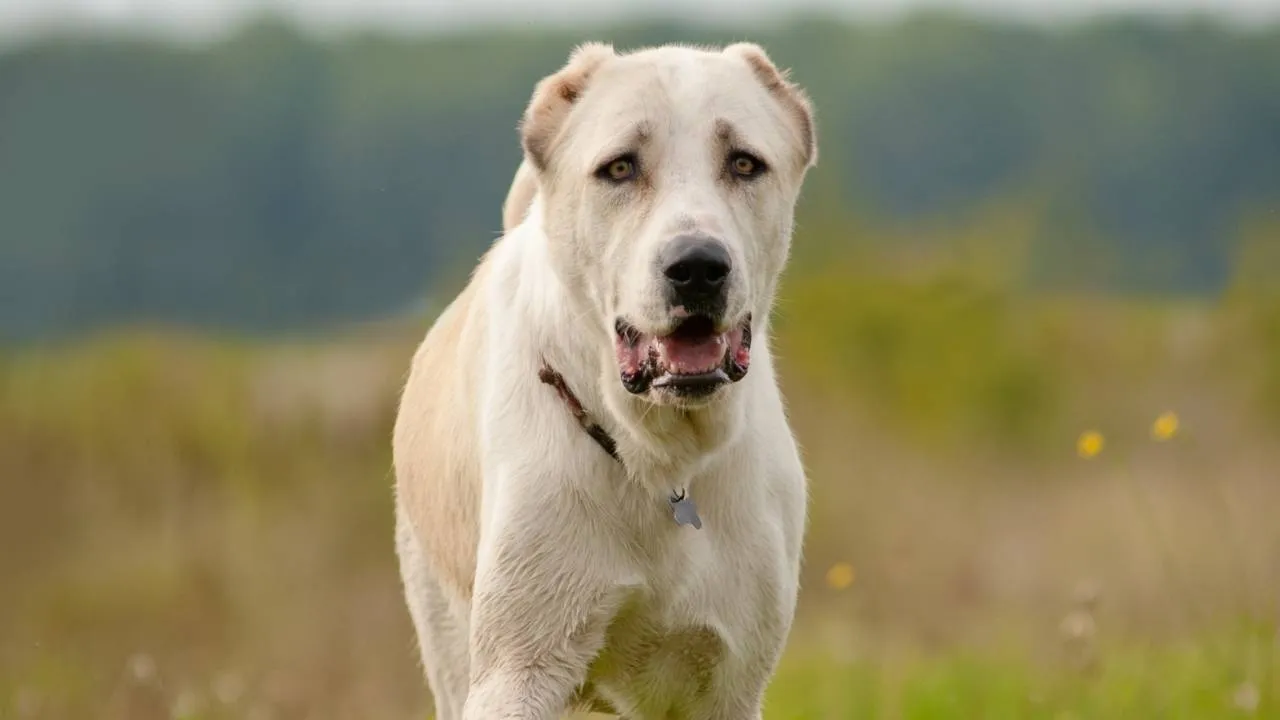
The Central Asian Shepherd, or Alabai, is a true symbol of independence in the dog world. Bred across the rugged landscapes of Central Asia, these dogs evolved to make their own decisions while protecting livestock from predators.
Their instincts are finely tuned, and they are far more likely to trust their judgment than to seek constant human direction. Independence in this breed isn’t stubbornness — it’s a survival trait deeply rooted in centuries of working without close supervision.
Central Asian Shepherd quietly assesses before deciding how to respond. Traditional obedience training often frustrates them, not because they can’t learn, but because they expect commands to make sense.
This breed’s independent mindset fuels its powerful protective instincts. A Central Asian Shepherd guards not because it’s told to but because it feels an internal duty to defend livestock, its home, and family. This natural self-assignment of responsibility makes them highly trustworthy guardians.
They respond best to strong, steady leadership that honors their intelligence. Harsh discipline can break their trust, while clear expectations and consistency strengthen the bond. Their independence means they think for themselves, but once trust is established, their loyalty is deep and unwavering.
Central Asian Shepherd’s independent spirit is its greatest strength. This breed thrives with owners who appreciate autonomy, resilience, and quiet confidence. They are not dogs for those seeking unquestioning obedience but for those who respect self-reliance and are willing to form a partnership based on mutual trust and strength.
7. Greyhound
Greyhounds are famed for speed, but their quiet independence is just as remarkable. Greyhounds prefer to think for themselves. Loyal yet reserved, they offer affection on their own terms, often choosing a calm, observant approach over eager obedience. Their self-sufficient nature makes them ideal companions for owners who respect a dog’s autonomy.
As noted by Britannica, this independence traces back to their origins as hunting dogs. Bred to chase and capture prey without human guidance, Greyhounds developed the ability to assess situations swiftly. Even today, they may pause to “decide” before following a command, a subtle reminder of their sharp instincts and thoughtful, deliberate nature.
Greyhounds form deep attachments but don’t constantly seek attention. They show loyalty quietly—resting near you, shadowing your movements, or offering a silent, trusting glance.
Uniquely, Greyhounds blend independence with easygoing adaptability. They quickly learn household rhythms without being needy or demanding. Whether in a bustling home or a quiet one, they match the mood effortlessly, offering companionship that feels genuine and refreshingly undemanding.
Owning a Greyhound is a relationship built on respect. They respond best to patient, positive guidance, not rigid commands. Earn their trust, and you’ll find an independent spirit who stands beside you—not out of obligation but out of a deep, quiet loyalty.
8. Chinese Shar-Pei
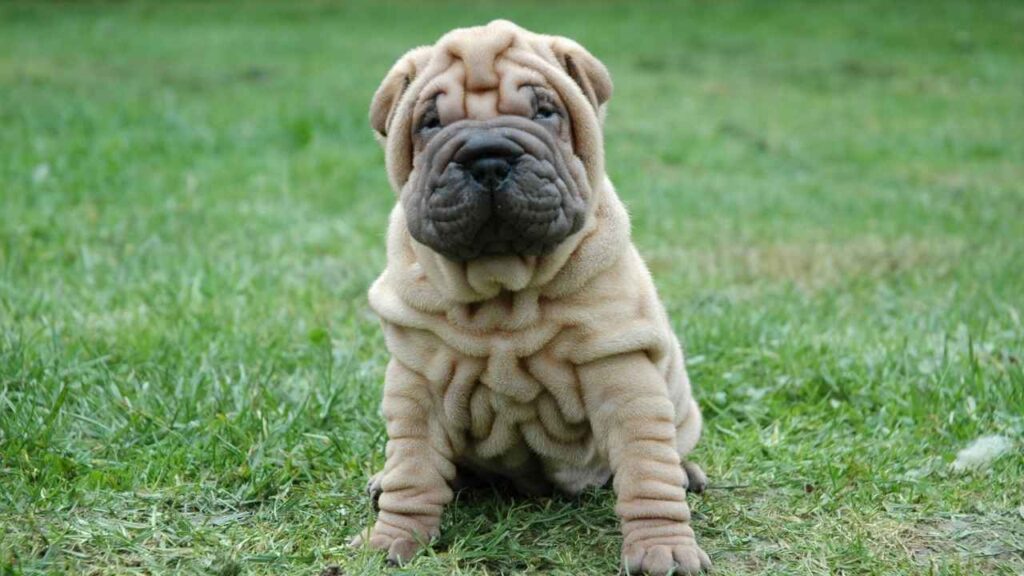
There’s a quiet mystery woven into the folds of the Chinese Shar-Pei — a breed that carries its independence like an ancient secret. This isn’t a dog that clings or begs for attention. Instead, the Shar-Pei moves through life with a quiet, contemplative spirit, making decisions as if guided by an inner compass.
The Shar-Pei’s roots trace back thousands of years to farms and villages where survival meant thinking fast and thinking alone. Left to guard property and livestock, they sharpened an internal sense of judgment that remains remarkably intact today.
Modern Shar-Peis still carry this proud, self-sufficient streak. They evaluate situations before acting, often responding to commands with a pause, not out of defiance, but in calculation. They’re asking, “Is this worth my energy?” And if it is, they commit with calm, deliberate certainty.
Shar-Pei does not wear their emotions on their sleeve; rather reveal themselves slowly and only to those they trust. Their independence extends to how they form relationships: loyalty is earned, not given freely. You won’t impress a Shar-Pei with treats or baby talk; you’ll earn their respect through consistency and kindness.
They are intelligent, but they are selective learners. Commands need to have a purpose; otherwise, they simply won’t see the point. Harsh methods or overly repetitive drills bore them quickly and can even provoke quiet resistance.
Instead, a Shar-Pei thrives with owners who respect their autonomy, offering guidance, not domination, and understanding that cooperation with this breed is a negotiation, not a demand.
9. Basenji
Basenji is the epitome of independence in the dog world. Known as the “barkless dog,” this breed is not only silent but also fiercely self-reliant. Originating from central Africa, Basenjis were bred to hunt alone in the wild, making decisions on their own without human intervention.
This independence runs deep in their personality: they’re not the type of dog to follow the pack or simply obey commands. Instead, they approach life with quiet confidence and an unspoken understanding of their surroundings.
Basenjis are deeply curious and observant, always analyzing their environment before taking action. They won’t rush into things without assessing the situation first, making them seem distant, but in reality, they are thinkers at heart. This makes training them a unique challenge; they won’t do something just because you ask—they need to understand the reasoning behind it.
Basenji’s independence extends to their emotional needs. They are happy to spend time with their family, but will never demand attention. This balance of affection and autonomy means they’re perfectly content in homes where their space is respected and their unique nature is appreciated.
Interestingly, Basenjis are a paradox: they crave independence but bond deeply with their families. While they may seem distant at first, they develop a loyal attachment to those they trust. They are not outwardly affectionate but will follow you around the house, sit close by, and even give you the occasional, meaningful glance—a true sign of their reserved loyalty.
10. Afghan Hound
Classified by the American Kennel Club (AKC) as an ancient breed, the Afghan Hound is the oldest breed of purebred dogs. (An ancient myth says that a brace of Afghan Hounds represented the canine species on Noah’s Ark.)
It carries the spirit of self-sufficient dogs bred to survive without constant interaction. Where other dogs seek approval, the Afghan listens to an internal rhythm — proud, solitary, and content to be left to its own devices.
They require moderate exercise to satisfy their athletic soul but don’t demand constant entertainment. Given adequate exercise and mental stimulation, they can be peacefully independent for extended periods.
Their grooming needs are famously high, yet their emotional needs are blissfully light. Afghan hounds are not overly clingy. They do bond deeply but selectively. Puppies may reveal a playful side, but as they mature, their loyalty is wrapped in dignity. They prefer connection without demands, a rare balance few breeds achieve.
Owning an Afghan Hound is less about commanding obedience and more about honoring an ancient pact. It is an invitation to share space with a creature that values freedom as fiercely as beauty. In a world where dogs tend to mold themselves to humans, the Afghan remains something rarer — a living fragment of untamed elegance.
Afghan Hound respects both its own space and yours. This reserved nature makes them a good match for busy owners who can balance alone time with adequate exercise.
Conclusion
When it comes to the most independent dog breeds, choices like the Basset Hound and Scottish Terrier offer loyalty without being overly demanding. Breeds such as the Cairn Terrier and Lhasa Apso combine a calm demeanor with a touch of spirit, perfect for owners who prefer companionship without constant attention.
The Italian Greyhound, known for its low energy, and larger, laid-back breeds like the Irish Wolfhound, also make excellent independent pets. Active breeds like the Alaskan Malamute still need regular exercise, while Standard Poodles blend intelligence with confidence.
Whether you prefer a small-sized companion, ideal for kids, or relaxed couch potatoes, there’s an independent dog perfectly suited to your lifestyle.


